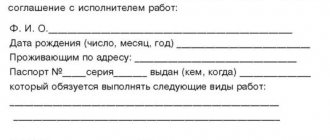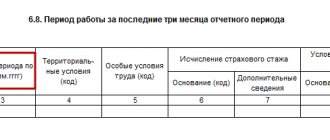The Labor Code prohibits the execution of civil contracts with employees, which in essence replace labor contracts (personal employment). Contract agreements, provision of paid services, cooperation and other similar obligations are illegal. However, employers neglect this prohibition, which affects the position of workers.
In labor relations, a person is provided with social insurance in case of illness or work-related injury, he is guaranteed regular paid leave, protection against sudden dismissal and increased wages for working on weekends. In civil law relations, the contractor is deprived of all this, and it is beneficial for the employer not to pay for the social package.
An employee can combat such abuses through judicial recognition of the relationship as an employment relationship. This practice has existed for a long time, and since January 1, 2014, the procedure for establishing the fact of personal hired labor covered by a civil agreement has been prescribed in the law as an independent measure of protection.
Where should I go to force my employer to formalize my work?
According to the law, the fact of personal hiring can be established by:
- the employer at the written request of the employee executing the contract or by order of the Labor Inspectorate (the state body for the protection of workers' rights), if there was a complaint to it from the employee himself;
- court - at the request of the employee.
If the contract for services instead of an employment contract has already been terminated, then only a court can confirm the fact of employment.
There is no guarantee that an organization that infringes on the rights of an applicant when hiring will fulfill his request to draw up an employment contract or an inspection order. Therefore, in any case, it is better for the employee to count on judicial protection. Compliance with pre-trial settlement of disagreements is not required; you can immediately go to court.
Individual work disputes are heard by district courts. To initiate proceedings, the employee must file a claim there to recognize the relationship as an employment relationship.
Wages paid to an unregistered worker can be recovered from the person who allowed him to work
From this year, labor relations will be considered to have arisen if the employee was allowed to work only by an authorized person (Article 67.1 of the Labor Code of the Russian Federation). It must be vested with the authority to hire workers (order, power of attorney, employment contract, local acts of the company, charter). Otherwise, the employer has the right not to recognize such an employee as his own.
But the employee will need to pay for the work from the moment of actual admission. Will the employer be able to recover the money paid from the person who allowed the employee to work without having the authority to do so? The Labor Code of the Russian Federation allows this to be done. According to Art. 67.1 of the Labor Code of the Russian Federation, such an employee can be held financially liable.
But until January 2020, it will be problematic to recover the damage in full. This is due to the fact that the amendments to the Code of Administrative Offenses of the Russian Federation establishing administrative liability for such persons have not yet entered into force (Part 2 of Article 5.27 as amended). Since it is now impossible to hold the employee accountable, it is impossible to recover damages in full in accordance with clause 6, part 1, art. 243 of the Labor Code of the Russian Federation will not work. However, the employer has the right to recover damages in the amount of average earnings (Article 241 of the Labor Code of the Russian Federation).
During inspections, the inspector will also determine whether the employer knew about the fact of admission.
If the director answers in the affirmative in written explanations, this will be sufficient to establish the fact of evasion from concluding an employment contract. This can also be confirmed by documents with the signature of an authorized person - a pass, salary payment statements, etc. The inspector will also find out whether the employer instructed someone to allow the employee to work. It is possible that there was some kind of order or verbal instruction. Does the labor inspector have the right to issue an order to conclude an employment contract instead of a civil one? No, according to Part 4 of Art. 11 of the Labor Code of the Russian Federation, only a court can recognize civil relations as labor. It has the right, since such powers of the inspector are provided for by the Labor Code of the Russian Federation. Only the Chief State Labor Inspector of Russia has the right to recognize labor relations in addition to the court. In accordance with Art. 19.1 of the Labor Code of the Russian Federation, a labor inspector can recognize civil relations as labor relations by issuing an appropriate order to the employer.
How to prove an employment relationship?
The result of the dispute should be the establishment of the fact of an employment relationship - contractual paid use by the employer in his own interests of the personal labor of an individual for a certain work function, under his control, support and responsibility, with subordination to the latest internal labor regulations.
To make it clearer, from this multi-component definition we will highlight individual elements, the existence of which must be confirmed in court:
Personal performance of labor functions.
The key difference between hired relationships and civil law ones is the employee’s obligation to perform a specific type of work assigned to him in a certain position and profession. In contractual relations between contractors and paid services, on the contrary, the contractor is responsible precisely for the result, and not for the process.
A person must work himself; transferring obligations to another person is allowed only in civil relations.
The constant performance of the same work can be proven by the testimony of colleague witnesses, a set of agreements for the provision of services (contract) indicating the repeating duties of the performer. Ideally, the contractual duty should coincide with the labor function of a similar position in the staffing table of the employing organization. In the proceedings, you need to ask the court to request this document from the defendant.
The employer manages, controls and provides labor, and is responsible for the result. The employee is subordinate to him.
It is the manager, not the employee, who decides how to do the work. And he is also responsible for the choice. In a civil agreement, the right to choose methods for achieving the results of an activity and responsibility for risks belongs to the contractor.
The lessor has the right to check the work, correct it, and give instructions at any time. Whereas the customer under the contract has no right to interfere with the activities of the contractor.
And finally, the employer himself takes care of creating the necessary working conditions. This means that he arranges workplaces, purchases the necessary equipment, looks for clients, etc. The executor of the contract provides the work himself.
The fact of subordination can again be proven by testimony and the wording of the contract. An indication of the obligation in the form of “execute on instructions” instead of “hand over the result” is a clear sign of covert hiring.
Submission to internal labor regulations.
During working hours, the employee must be in the agreed place and perform his duties. Rest - after the end of the shift and on weekends. The performer does not obey this rule and decides for himself when and where to work.
Indication in the agreement of the specific location of the performer is an additional plus in proof. But if this condition does not exist, explanations from colleagues or passes that record the time of arrival and departure to the building of the renter’s organization will help.
Receiving a salary.
A sign of a salary is the systematicity of payments in approximately the same amount. If remuneration for services is paid regularly or its amounts are identical in the totality of contracts, this may be recognized as wages. Money transfers to the performer’s bank card on the same dates of the month will serve as good evidence.
If it is not possible to prove all the elements, do not despair. The law protects the employee by the rule that any doubts regarding the consideration of a dispute regarding the coverage of personal work are interpreted in favor of the existence of such a relationship.
Replacing an employment contract with a civil law fine
All individual entrepreneurs know that if you hire even one employee, then reporting and employment costs will immediately increase. The likelihood of all kinds of inspections by the labor inspectorate increases sharply.
Some individual entrepreneurs are trying to replace the employment contract with a civil law contract (a civil law contract).
And not everyone knows what the difference between an employment contract and a GPC is. And, most importantly, what threatens such a substitution on the part of inspectors.
The main differences between the following:
Employment contract:
The employee performs work in a certain specialty, qualification or position in accordance with the staffing schedule, observes working hours, and is at an equipped workplace.
Receives a salary and is on the staff. It is protected by laws that govern the relationship between employee and employer.
GPC Agreement:
The GPC agreement specifies specific work, the purpose of which is to achieve a result that is clearly specified in the GPC agreement. In fact, we are talking about one-time work. For example, a one-time setup service for the customer’s equipment. Or, for example, window repair.
But you cannot hire a person under a GPC agreement if we are talking about regular, repetitive work.
The following features will be important differences between a GPC agreement and a labor agreement:
- There are no social guarantees for the “employee”
- He does not obey internal labor regulations
- He cannot have vacation or sick leave
- He is not on the staff.
- No entry is made into the work book
And if during the inspection it turns out that instead of concluding a full-fledged employment contract, the employer entered into a GPC agreement, then sanctions will follow in the form of an administrative fine:
- For individual entrepreneurs, a fine ranges from 5,000 to 10,000 rubles.
- For officials, a fine ranges from 10,000 to 20,000 rubles.
- For legal entities, a fine ranges from 50,000 to 100,000 rubles.
Thus, it should be well understood that replacing an employment contract with a GPC agreement will sooner or later lead to problems.
Similar articles:
PS If our site helped you or you liked the article, then share it with other entrepreneurs on social networks!
And don’t forget to subscribe to new articles for individual entrepreneurs!
Don't miss important news for entrepreneurs!
Receive new articles to your email
Check your email!
Try again. there's a mistake somewhere
By clicking on the “Subscribe” button, you consent to the processing of your personal data and agree to the privacy policy.
Leave a comment Cancel reply
By clicking on the “Submit a comment” button, you consent to the processing of your personal data and agree to the privacy policy.
The Labor Code establishes a direct ban on the conclusion of GPC agreements, which actually regulate labor relations.
Evasion of registration or improper execution of an employment contract or conclusion of a civil contract shall entail the imposition of an administrative fine.
for officials in the amount of 10,000 to 20,000 rubles;
for persons carrying out entrepreneurial activities - from 5,000 to 10,000;
for legal entities - from 50,000 to 100,000 rubles (for repeated violations - up to 200,000 rubles).
The difference between an employment contract and a civil contract is that an employee under a labor agreement performs work in a certain specialty, qualification or position in accordance with the staffing schedule, observes working hours, and is at an equipped workplace. And civil contracts prescribe the performance of specific work, the purpose of which is to achieve the result stipulated by the contract. For example, a contract for roof repairs, delivery of cargo to a certain location, equipment setup services when there is a need to perform a number of one-time works. The employee does not obey the internal labor regulations of the organization.
When concluding civil contracts, social guarantees are not provided: for paid vacation and paid sick leave, guarantees for dismissal, reduction of staff. Also, the work record will not be entered into the work book.
If an employer proposes to draw up a civil contract covering the actual employment relationship, he is breaking the law, reports the State Tax Inspectorate for the Pskov Region.
If you were forced to enter into a civil contract, you can apply to the State Tax Inspectorate or directly to the court with a claim against the employer to recognize the relationship as an employment relationship.
The conclusion of a civil law agreement that actually regulates labor relations is a fairly common situation in modern practice. This may be due to various reasons. Most often, both parties are interested in formalizing labor relations in this way. The employer - because it helps him save on wages, vacation pay and social insurance payments and significantly simplifies the procedure for parting with an employee; and the employee does not want, for example, to have a record of work in a lower position in his work book, or this work is not his main, temporary one.
Read more: Arbitration Court of the Republic of Karelia information about cases
Previously, judicial practice regarding the recognition of labor relations arising on the basis of a civil law contract was ambiguous. The outcome of the case could be unknown in advance, and the courts resolved such disputes differently, based on the specific materials of the case. Therefore, under the existing conditions, the risk of concluding civil contracts instead of labor contracts could be justified.
However, from January 1, 2020, the conclusion of civil contracts that actually regulate labor relations becomes a more dangerous practice and may cause not the most favorable consequences for the manager.
The trend to suppress situations of regulating labor relations by civil contracts appeared in 2014.
Since January 2014, the Labor Code of the Russian Federation contains a direct ban on concluding civil contracts that actually regulate labor relations between an employee and an employer (Part 2 of Article 15 of the Labor Code of the Russian Federation). And a reference to the absence of this position in the staffing table, which is referred to in Part 1 of this article: “Labor relations are relationships based on an agreement between the employee and the employer on the personal performance by the employee for payment of a labor function (work according to the position in accordance with the staffing table...) "will not be a sufficient argument in court in the event of a dispute. The employer will simply be obliged to make changes to the staffing table, since the absence of a free unit in the staffing table cannot serve as a reason for refusing to conclude an employment contract.
Art. 16 of the Labor Code of the Russian Federation, which provides for the grounds for the emergence of labor relations, has also undergone changes, and since 2014, among other things, labor relations may arise as a result of the recognition as such relations related to the use of personal labor and arising on the basis of a civil law contract (para. 6 part 2 article 16 of the Labor Code of the Russian Federation).
Also, since January 2014, a new norm has come into force, establishing the procedure for recognizing labor relations from a civil contract - Article 19.1 of the Labor Code of the Russian Federation. The legislator has provided several options for such recognition.
Firstly, recognition of the existing relationship as an employment relationship can be carried out in a pre-trial manner by the customer himself (i.e., hereinafter - the employer) upon a written application from the contractor (i.e., hereinafter - the employee) or by order of the state labor inspector to eliminate the violation.
By the way, if the head of an organization does not agree with the instructions of the labor inspectorate (LIT), then he has the right to appeal them to the court and, in some cases, not take any action until the court makes a decision, because in accordance with the position of the Armed Forces of the Russian Federation, the labor inspectorate (LIT) is not a body for resolving labor disputes (Definitions of the Judicial Collegium for Civil Cases of the Armed Forces of the Russian Federation dated June 20, 2014 in case No. 21-KG14-4 and dated March 21, 2014 in case No. 47-КГ14-1) .
Secondly, recognition of labor relations can occur in court. Both the “failed” employee himself and the state labor inspectorate or other bodies and persons with the necessary powers in accordance with federal laws (tax inspectorate, for example) can go to court.
Both the first and second cases relate to the situation when the civil contract is not terminated and the relationship between the organization and the contractor continues. If the relationship has ended, then it is still possible to recognize it as an employment relationship. In this case, the performer (employee) himself has the right to apply to the court for recognition of the employment relationship within the time limits provided for in Art. 392 Labor Code of the Russian Federation.
You must understand that if an employment relationship is recognized, the employer will most likely be required to make all mandatory payments to the Social Insurance Fund, Federal Compulsory Medical Insurance Fund and Pension Fund, as well as to the tax authorities, including fines for late payments. In addition, the employer will have to pay vacation pay to such an employee; make payment for forced absence (the period of legal proceedings) and possibly compensate for moral damages. Legal costs, accordingly, will also be recovered in favor of the employee at the expense of the employer.
The above payments represent the financial responsibility of the organization under labor law.
However, violation of labor legislation simultaneously entails administrative liability - both for the organization and for the manager.
Read more: How to change a gas stove in an apartment yourself
Thus, on January 1, 2020, changes to the Code of Administrative Offenses of the Russian Federation (CAO RF) regarding liability for violation of labor legislation and other regulatory legal acts containing labor law norms came into force.
Now, in accordance with Part 3 of Art. 5.27 of the Code of Administrative Offenses of the Russian Federation, failure to formalize or improperly formalize an employment contract or the conclusion of a civil contract that actually regulates labor relations between an employee and an employer - entails the imposition of an administrative fine on officials in the amount of ten thousand to twenty thousand rubles; for legal entities - from fifty thousand to one hundred thousand rubles.
And if the specified person has previously been punished for a similar administrative offense, the amount of the fine for legal entities will be from one hundred thousand to two hundred thousand rubles; officials will face disqualification for a period of one to three years.
It is important to note that in March 2013, the Judicial Collegium for Civil Cases of the Supreme Court of the Russian Federation adopted a precedent-setting decision regarding the calculation of time limits for an employee to go to court to protect his rights and recover material damage from the employer in the event that the relationship is recognized as labor (Determination of the Supreme Court of the Russian Federation dated March 15. 2013 in case No. 49-KG12-14).
According to the Labor Code of the Russian Federation, the deadline for applying for resolution of an individual labor dispute (Article 392) is three months from the day the employee learned or should have learned about the violation of his right, and for disputes about dismissal - one month from the date the employee was given a copy of the order dismissal or from the date of issue of the work book.
In the case where a person applies for recognition of an employment relationship, the period must be three months.
However, before the decision of the Supreme Court of the Russian Federation, there was no uniformity in judicial practice regarding what period to apply (one month or three months), as well as from what point this period should be calculated, especially in cases where the employee disputed the terminated civil law contract and asked the court not only recognizes the relationship as an employment relationship, but also restores it to its previously occupied position.
Considering that Art. 392 of the Labor Code of the Russian Federation, the period for challenging dismissal is set short (one month), the courts in many cases refused to protect the violated rights of the applicants, stating that the deadline for filing a lawsuit had passed.
The ambiguity of this approach of the courts to the issue of calculating the statute of limitations for this category of disputes was associated with two points:
firstly, according to Art. 392 of the Labor Code of the Russian Federation, the period for an employee to appeal to the court must be calculated from the moment of delivery of the dismissal order or work record book, which does not happen when a civil law contract is terminated, and therefore the courts spent several hearings to establish when the employee finally found out, that the civil contract with him would not be renewed and that very moment was considered the date of dismissal, which did not quite correspond to the letter of the law;
secondly, when challenging the unjustified termination of a civil contract and at the same time the plaintiff’s demand for reinstatement in a previously held position, difficulties arose in determining in what position, strictly speaking, the employee should be reinstated, since the court does not have the right for the employer to determine the names of positions and enter change in the staffing schedule of the defendant organization.
This legal conflict was resolved by the Decree of the Judicial Collegium for Civil Cases of the Armed Forces of the Russian Federation dated March 15, 2013 in case No. 49-KG12-14.
The panel of judges indicated that, in accordance with Part 1 of Art. 14 of the Labor Code of the Russian Federation, the period with which this Code (Labor Code of the Russian Federation) associates the emergence of labor rights and obligations begins with the calendar date that determines the beginning of the occurrence of these rights and obligations.
Accordingly, in this situation, the relationship between the plaintiff and the defendant acquires the status of labor after it is established as such in court.
The logic of this approach is as follows.
Let us assume that a person carried out any activity on the basis of a civil contract for a certain time. Then, the relationship ended. And the performer, realizing that all this time he was actually an employee, because regularly performed work at the order of the customer, using the organization’s equipment, obeyed internal labor regulations and received monthly payments, decided to go to court for recognition of the labor relationship and recovery of all payments due to him. Labor relations at this stage have not yet been recognized and, accordingly, the period of time stipulated by the Labor Code of the Russian Federation has not yet begun, because The moment when the performer learned about the violation of his rights as an employee (!) has not yet arrived.
Read more: How to view the boundaries of a plot by cadastral number
This means that the relationship between the parties to a civil contract cannot yet be considered labor, because they are not recognized as such, and only the court is authorized to do this (in the event that the defendant employer voluntarily does not recognize the existence of an employment relationship) (Article 19.1 of the Labor Code of the Russian Federation).
It is obvious that the established judicial precedent and law enforcement practice are not in favor of the employer, since with this approach of the courts, the risk of an unrecognized employee missing a deadline is practically negligible.
Thus, judicial practice establishes the following algorithm for challenging a civil contract by an employee and the procedure for holding the employer financially liable for its unlawful conclusion (collection of vacation pay, average earnings for days of forced absence, compensation for moral damage and legal expenses).
After establishing the existence of labor relations between the parties, they are subject to registration in the manner established by labor legislation, and also after they are recognized as such, the plaintiff has the right to demand the extension of labor legislation to existing labor relations, and in particular, to demand the collection of arrears of wages, compensation for unused vacation upon dismissal and make other demands related to labor relations.
The legal dispute essentially branches into two processes - the first process is about recognizing the relationship as an employment relationship, and the second process is about collecting material damage from the employer, which will proceed sequentially. Moreover, if the first claim is satisfied, the result of the second case becomes practically predetermined.
In conclusion, I would like to once again emphasize the fact that currently there is a serious tightening of regulatory legal acts in the field of regulation of labor relations. The legislator has “taken a course” to combat various violations and, in particular, is trying to move away from the practice when, in fact, labor relations are regulated by civil contracts.
As a result, employers should move away from the practice when the conclusion of civil contracts was left to the accounting department, whose task was reduced to selecting a suitable template from the 1C program that did not take into account legal risks.
Therefore, when developing a scheme for attracting personnel to projects, it is important for employers to think through possible negative consequences in advance and draw up civil contracts in such a way as to neutralize the risks of recognizing them as labor contracts.
In many cases, work functionality can be formalized by both an employment and civil law contract. Moreover, the conclusion of a civil contract can be very lawful and justified, and not entail claims from the labor inspectorate - but only if such an agreement is drawn up correctly.
If your organization has concluded “template” contracts with everyone, it makes sense to do a personnel audit in this particular area and correct shortcomings in advance. Otherwise, the labor inspectorate (LIT) may issue an order to the employer to eliminate violations at the first inspection, and the employee will have a better chance of recognizing the existing relationship as an employment relationship. Experience shows that cases of large fines, protracted litigation and disqualification begin with small and insignificant violations!
In a number of cases, the financial losses of an organization, when the guilty actions of a manager are established, can be recovered from him in a recourse manner.
By the way, the category of cases challenging civil contracts has the risk of being “massive”, i.e. when inspections and litigation are carried out by a group of activists, who are “followed” by other employees, waiting for the result to make a decision regarding themselves - to file a claim (complaint) or not to file. Filing claims to the employer looks very tempting for an employee - as a rule, we are talking about several years of vacation pay and a narrowing of the employer’s opportunity to terminate the employment contract, which, in case of separation at the initiative of the employer, is usually compensated for by the amount of one to several salaries, i.e. the average claim size is three salaries and motivates the employee to fight for his interests.
In such cases, it is important for the management of the organization to prevent the initiative and independently re-issue the contracts or quickly come to an agreement with the initiators.
The employer's behavior tactics will directly depend on the presence of errors and controversial provisions in civil law contracts and can range from negotiations with employees to resolve the dispute to defending its position in court.
It is important to think through the scenario of events in advance and think through a plan of action in the event of an unscheduled inspection.
In labor disputes, the one who reacts first to the situation is often right!
Let's look at two illustrative examples from judicial practice.
The teacher filed a lawsuit against the institute to recognize the relationship that arose on the basis of contracts for the provision of paid services as labor, indicating that in 2007-2015, civil contracts were annually concluded with her to give lectures on legal disciplines on the same conditions with the same payment in the form of an hourly rate for an assistant professor in the amount of 400 rubles. The court found that the parties actually had a labor-for-hire relationship, since the terms and procedure for educational services were established by separate orders of the rector, the salary was regular and its amount corresponded to the rates accepted by the employer (Appeal ruling of the Moscow City Court dated December 6, 2016 in case No. 33- 40506/2016).
In another case, a court decision established the fact of illegal substitution of personal employment with a contract agreement between an individual and the employer - the local administration. The motive was the work conditions under which the actions assigned to the contractor—operating a fire truck and repairing a garage—did not involve achieving a specific result, but consisted of systematically performing identical work within an agreed time frame. At the same time, the plaintiff was obliged to work personally, while a civil contract allows for the transfer of duties to a subcontractor (Appeal ruling of the Omsk Regional Court dated April 14, 2016 in case No. 33-2771/2016).
Which to choose?
During employment, the manager and the worker can enter into one agreement between themselves from two options: a civil law or an employment contract.
The latter should be concluded if the worker performs one task for a long time. It is more logical to draw up an employment agreement for sellers, watchmen, accountants and drivers. A civil contract must be drawn up if the worker is needed for a specific, short-term and one-time task. This could be carrying out advertising activities, repair work, etc.
It should be noted that it is possible to replace one contract with another, but subject to all necessary conditions.
Pros and cons of a labor agreement
When comparing two agreements, you need to consider the pros and cons of each.
For the worker, the advantages of this document are as follows:
- the worker is guaranteed to receive a monthly salary;
- the worker is entitled to a social package;
- The employee is accrued experience.
There are no obvious disadvantages. It is only necessary to take into account that when signing an employment agreement, a citizen must always adhere to the basic regulations of the organization.
The advantages for a manager when concluding an employment contract are that the employer can influence the worker thanks to internal documents with regulations and job descriptions.
The disadvantages for the manager will be as follows:
- the manager is obliged to regularly pay his subordinates a salary, which cannot be lower than the minimum established by law;
- the worker must be on staff, and if there is no vacant position, then the manager needs to change the staff schedule;
- the employer must provide comfortable working conditions for his subordinates (the necessary furniture in the office, etc.).
Advantages and disadvantages of hiring
For the employer, the advantages of such an agreement are as follows:
- the worker must perform specific work for a certain period;
- the social package may not be provided to the worker;
- there is no need to compensate the worker’s expenses for completing the task;
- no need to take out insurance.
Disadvantages for the employer:
- the boss does not have the right to hold the worker to any type of liability;
- the process of completing tasks is not controlled by the boss;
- if a civil contract becomes an employment contract, then negative changes will follow for the employer.
Advantages for the worker:
- the enterprise regime does not concern the worker;
- an employee performing duties under a civil contract is an individual entrepreneur and therefore independent in many matters;
- the worker must perform specific work, which is recorded in the documents, and other events of the organization (subbotniks, corporate parties, etc.) do not concern him.
When drawing up a civil agreement, the employer needs to be extremely careful, because any similarity to an employment contract may lead to the substitution of one document for another.
Responsibilities of the employer after recognition of the relationship as an employment relationship
In case of successful proof of actual employment, it is considered that such existed from the first day of work. This leads to a number of employer responsibilities:
- officially formalize an employment contract, an employment order, and make an entry in the work book from this date;
- transfer insurance contributions for the previous period to the Pension Fund, Compulsory Medical Insurance Fund and Social Insurance Fund, and income tax to the tax office;
- pay additional wages, benefits, allowances and compensation to the employee;
- pay interest on late payments.
If the case is won after the end of cooperation, the employer must pay for annual leave.









